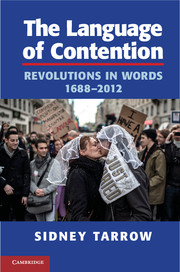Book contents
4 - Race and Rights
Published online by Cambridge University Press: 05 June 2014
Summary
Harvard professor Henry Louis Gates Jr. was tired. It was the middle of July, 2009, he had just returned from a trip to China, and the front door of his home wouldn't open. With the help of his driver, Gates forced it open. At the same time, a passing senior citizen told Lucia Whalen, who lived across the street, that two men were forcing open Gates's door. Not recognizing Gates or his driver, Whalen called the Cambridge police, making clear that she doubted whether an actual crime was in progress.
Sgt. James Crowley, a Cambridge native who had previously worked for the Harvard police, answered the call. He walked up the steps, saw Gates on the phone inside, and asked him to step outside. Gates replied, “No I will not!” When Crowley explained that he was answering a report of a break-in in progress, according to the police officer, Gates heatedly exclaimed, “Why? Because I’m a black man in America?” After a number of such exchanges Crowley put Gates under arrest. He was transported to a Cambridge police station in a police cruiser and booked for disorderly conduct.
Race was never far from the surface of the encounter: when Whalen called the Cambridge police, the dispatcher asked her several times if the men who had forced open Gates’s door were “white, black, or Hispanic.” According to Charles Ogeltree, Gates’s attorney and a Harvard law professor, Crowley was obviously offended by Gates’s belligerence, but his report reflected both “his presumption that a criminal act was taking place” and skepticism about Professor Gates’s actual identity (Ogletree 2010: 31). Gates, for his part, felt he was being unfairly targeted in his own home because of the color of his skin.
- Type
- Chapter
- Information
- The Language of ContentionRevolutions in Words, 1688–2012, pp. 81 - 114Publisher: Cambridge University PressPrint publication year: 2013



